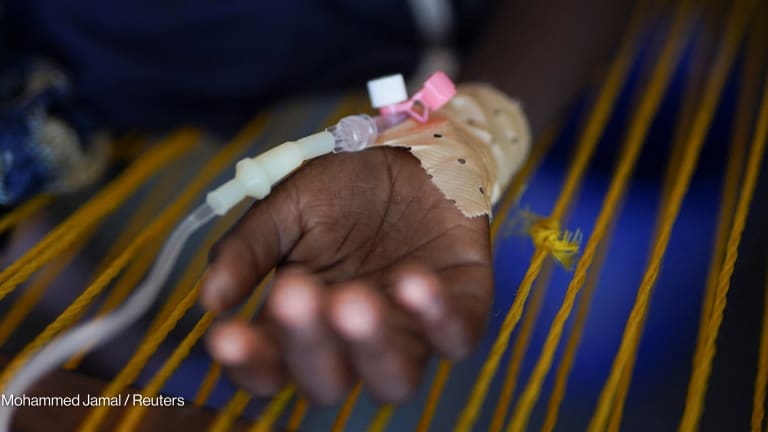
Over the 24 years in which the United Nations has been marking World Water Day, we have seen some incredible progress.
But what those numbers don’t reveal is how uneven that progress has been, and how many of the world’s poorest continue to be left behind.
The new WaterAid briefing, “Water: At What Cost — The State of the World’s Toilets,” provides a snapshot of the daily realities for many of the 650 million people in the world without an improved source of drinking water. The impact is devastating, and hard to imagine: ill health, wasted opportunities, lost productivity.
There remain 16 countries in the world where more than 40 percent of people do not have access to clean water, 12 of which are in sub-Saharan Africa. The result is that some 315,000 children around the world lose their lives to diarrheal illnesses before their 5th birthday, each and every year. One in 5 babies who die in their first month of life is claimed by sepsis, which might have been prevented with safe water, good sanitation and good hygiene, including midwives being able to wash hands with soap.
Of these countries, Papua New Guinea has the lowest rate of access, with nearly two-thirds of people here facing a daily struggle for clean water. Compounding the problem is the 81 percent of people without access to decent, private toilets.
This remote and mountainous country, which has more than 850 different languages among its 7.3 million people, faces some of the most difficult development challenges on Earth. It is a poor nation threatened by rising seas, and climate change is worsening both regular flooding and droughts.
This struggle for water also carries a financial impact, on households, on businesses and on nations. This year’s United Nations theme for World Water Day explores the links between water and employment, and the impact on business when clean, safe water is so difficult to come by.
Consider the situation in Antananarivo, Madagascar, where a factory worker would have to spend around 45 percent of their daily wage to get 50 liters of water — the World Health Organization recommended minimum for daily needs — from a tanker truck. This is just one-third of the amount we use on average here in the United Kingdom. Yet inevitably, many of the poorest simply can’t afford that amount, and may resort to supplementing what little they can purchase with surface water collected from rivers or ponds.
Lack of access to water and sanitation becomes an enormous burden that carries through to the factory floor, in the form of reduced productivity, more frequent illness, higher employee turnover and low morale.
What is frustrating is we know the solutions. Political prioritization at all levels with enough financing can overcome these challenges. We have seen in East Asia, for instance, how Singapore delivered sanitation to all within a generation by focusing political attention from all levels, including water and sanitation in urban planning, creating behaviour change through a mass market campaign so that everyone was aware of the move to keep Singapore clean, creating awareness of sanitation as an important public health issue, and finally providing sufficient financing to ensure sanitation delivery, including maintenance and improvements.
Corporates also have a role to play, by using water resources responsibly, by ensuring WASH access in the workplace, and by supporting governments and nongovernmental organizations to improve access in the communities where they work — safeguarding the health of their employees and becoming better corporate citizens as a result.
This World Water Day, as you turn on a tap or fill up the kettle, spare a thought for the 650 million without that luxury. The U.N. Global Goals on Sustainable Development have set in place a blueprint to right this wrong, with Goal 6 calling for universal access to water and sanitation by 2030.
It is an ambitious goal but we know it is achievable, with political will and financing. It’s time to make sure those who have been left behind are neglected no longer.
Join the Devex community and access more in-depth analysis, breaking news and business advice — and a host of other services — on international development, humanitarian aid and global health.








